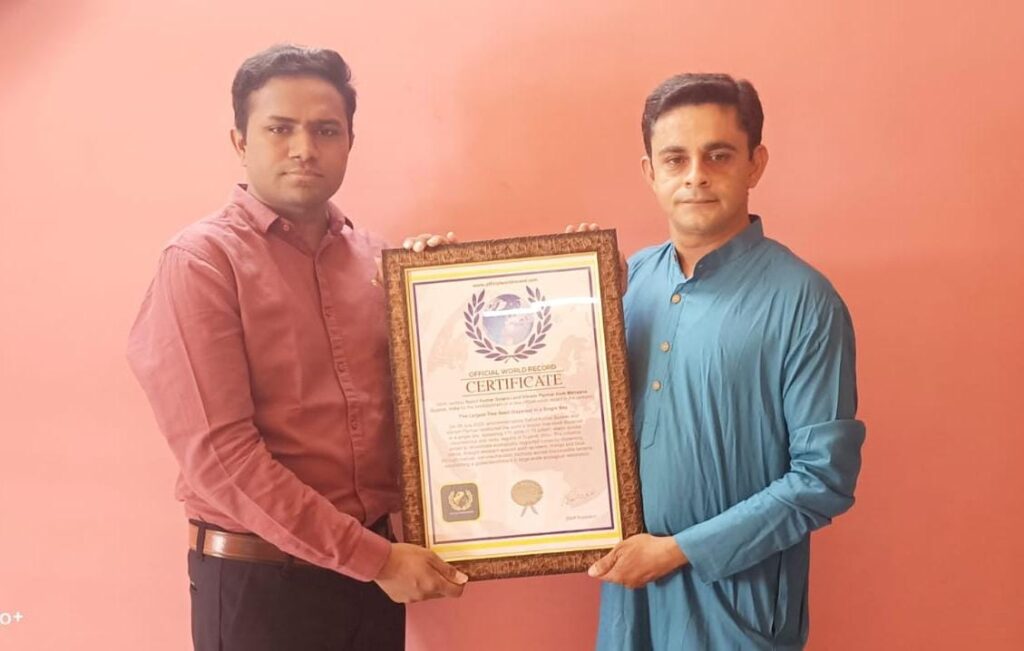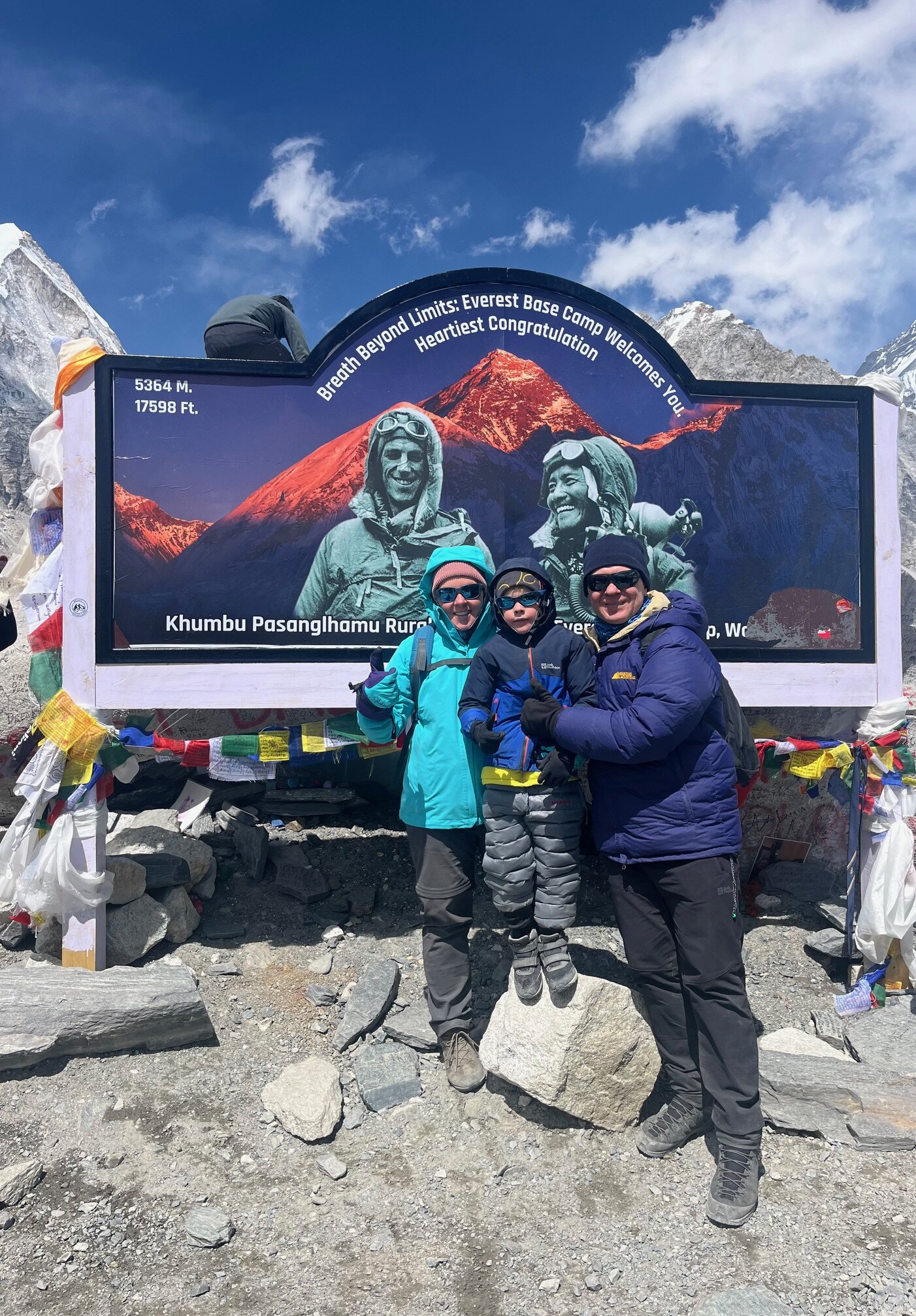
In an extraordinary display of environmental commitment and human perseverance, Rahul Kumar Solanki and Vikram Parmar from Mehsana, Gujarat, India achieved an unprecedented feat that captured the world’s attention. On 06 July 2025 they successfully executed the largest tree seed dispersal in a single day, releasing an astonishing 175 crore or 1.75 billion seeds across the mountainous, rocky and drought prone terrains of Gujarat. This achievement is officially recognized by Official World Record under the title The Largest Tree Seed Dispersal in a Single Day. This historic event stands as a testament to the power of grassroots environmental action and the profound impact that individual initiative can have on ecological restoration. The scale, planning and dedication involved in dispersing billions of seeds within a single day place this project among the most significant reforestation efforts ever recorded.
A Mission Rooted in Sustainability
Unlike modern reforestation initiatives that rely on heavy technology such as drones or industrial machinery, Solanki and Parmar opted for a manual and natural approach. Their strategy was grounded in ecological principles that mimic the way nature disperses seeds through wind, gravity and wildlife. This sustainable and low-cost technique ensured that the process remained environmentally friendly and could be replicated easily in other regions without reliance on fuel or machines.
The initiative targeted inaccessible and ecologically fragile regions that include rocky hills, dry valleys and rugged mountain slopes of Gujarat. In such areas, planting saplings manually is both difficult and unsafe. By dispersing native seeds adapted to the harsh climate, Solanki and Parmar turned these barren landscapes into potential green zones capable of supporting diverse plant and animal life in the coming years.
Scientific Selection of Seeds
Every seed used in this campaign was selected based on soil composition, altitude, rainfall and survival capacity. The team primarily chose native and drought resistant species that could thrive in dry and rocky conditions with minimal human intervention. Among the seeds used were
The selection of seeds for this initiative was based on scientific and ecological reasoning, focusing on species that could thrive in harsh and arid conditions while supporting long-term ecosystem balance. Among them, Neem (Azadirachta indica) stands out for its exceptional drought tolerance and wide-ranging medicinal properties, making it a vital component of local ecosystems and an effective natural purifier of air and soil. Mango (Mangifera indica) was chosen for its dual ecological and economic value as a fruit-bearing tree that nourishes both wildlife and human communities while contributing to shade and soil enrichment. Equally important, Ficus racemosa (Cluster Fig Tree) plays a crucial role in maintaining biodiversity, providing food for birds, bats and insects and stabilizing fragile soils in hilly areas. Together, these native species form a resilient foundation for reforestation, ensuring that the restored landscapes remain sustainable, self-supporting and rich in biological diversity for generations to come.
By combining these species, the initiative promoted afforestation while strengthening the ecological web, ensuring that future forests sustain diverse flora and fauna and enhance carbon sequestration.
Long Term Environmental Impact
The estimated 175 crore seeds dispersed during this campaign are expected to lead to millions of trees taking root over the next few years. Even if only a small percentage of the seeds germinate, the resulting forest cover will transform the environment across large parts of Gujarat.
The expected environmental outcomes of this initiative are extensive and long-lasting. As the trees begin to grow, their roots will help stabilize slopes and prevent soil erosion, protecting the land from further degradation. The increase in vegetation will enhance groundwater recharge by improving soil permeability, allowing rainwater to seep into underground aquifers and restore the natural water cycle. Newly established forests will also play a vital role in carbon capture, absorbing significant amounts of carbon dioxide and contributing to global efforts against climate change. Additionally, the growth of native trees will revive wildlife habitats by attracting birds, insects and mammals, thereby restoring the region’s biodiversity. This project clearly demonstrates that large-scale ecological transformation is achievable without advanced technology, relying instead on vision, consistency and a deep understanding of natural processes.
A Model for Global Reforestation
This record breaking initiative is not only a national achievement but also a global inspiration. It shows how dedicated environmentalists and small community movements can achieve large scale impact through innovation and perseverance.
By focusing on sustainability instead of mechanization, Solanki and Parmar created a model for reforestation that can be replicated in other countries facing desertification, degraded hillsides or low rainfall. It shows that with minimal resources, communities can lead environmental restoration and contribute meaningfully to global ecological balance.
This milestone is particularly significant as the world faces rapid deforestation and climate change. International campaigns like the United Nations Decade on Ecosystem Restoration aim to recover millions of hectares of degraded land. The efforts of Solanki and Parmar align perfectly with those global goals by providing a practical and cost effective blueprint for reforestation in developing regions.
Dedication and Global Recognition
Rahul Kumar Solanki and Vikram Parmar have been involved in voluntary environmental activities since 2022, conducting numerous local seed dispersal drives across Gujarat. Their dedication is completely self funded without corporate or government sponsorship. Each campaign requires significant personal time and resources yet the impact is long lasting and measurable.
Their work shows how citizen led environmentalism can complement international climate action. It bridges the gap between community participation and scientific conservation, proving that true progress begins with the people who live closest to the land.
The Official World Record, Europe certification recognizes their achievement and honors their spirit of sustainable innovation. It sends a powerful message to global leaders, environmental organizations and young people everywhere that meaningful change begins with commitment and continuous effort. The story of Rahul Kumar Solanki and Vikram Parmar is one of resilience, purpose and hope. Through their one day record setting act, they proved that humanity still holds the tools to heal the planet through hard work and vision. As billions of seeds rest in the soil of Gujarat waiting to sprout into new life, their legacy continues to grow. The hills that were once barren will soon echo with the sounds of thriving nature, standing as a living monument to their belief that real environmental change is achieved through action, not words.
